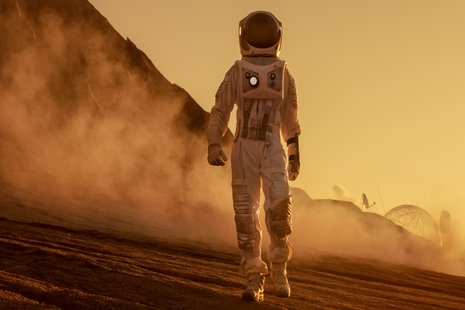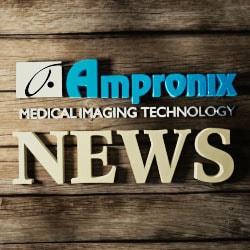Cosmic Radiation Exposure and Astronauts
Orange County, CA - October 22nd, 2018 - A new study published in the Proceedings of the National Academy of Sciences of the United States of America (PNAS) looks into the effects of deep space travel on astronauts. It suggests that deep space exposure of high-energy radiation can significantly damage gastrointestinal (GI) tissue leading to long-term functional alterations.
Previously, researchers highlighted possible impairment to brain tissue along with rapid aging due to long space trips in their work. Life on Earth is protected from the full impact of solar and cosmic radiation by the magnetic fields that surround the Earth and by the Earth’s atmosphere.
“With the current shielding technology, it is difficult to protect astronauts from the adverse effects of heavy ion radiation. Although there may be a way to use medicines to counter these effects, no such agent has been developed yet. While short trips, like the times astronauts traveled to the Moon, may not expose them to this level of damage, the real concern is lasting injury from a long trip, such as a Mars or other deep space missions which would be much longer,” says senior investigator, Kamal Datta, MD, an associate professor in the Department of Biochemistry and a project leader of the NASA Specialized Center of Research (NSCOR) at GUMC.
Mice were exposed to a low dose of iron radiation at the NASA Space Radiation Laboratory (NSRL) in Brookhaven National Laboratory in New York, and the animals were then examined at Georgetown. The researchers compared a group of mice that received heavy ions, to mice exposed to gamma rays, and to a third unexposed control group. The results showed the intestinal cells in the heavy ion group did not absorb nutrients adequately. They formed and that they formed a cancerous growth on the inner surface of the colon.

In addition, researchers found evidence that iron radiation helps DNA damage that increases the number of senescent cells. “Senescent cells are incapable of normal cell division but they are not “quiet”. They generate oxidative stress and inflammatory molecules that induce more damage. This greatly affected migration of cells that are needed to replace the intestinal lining, which slowed down GI functioning,” says Datta.
“We have documented the effects of deep space radiation on some vital organs, but we believe that similar damage responses may occur in many organs,” says Datta. “It is important to understand these effects in advance so we can do everything we can to protect our future space travelers.”
More research is required to understand the effects in advance, so astronauts can be protected. Space agencies may need to develop a shielding technology that can keep the radiation out.
Contact Ampronix:

Email: info@ampronix.com
International Sales: +1 949-273-8000
Domestic Sales: 1800-400-7972 for US and Canada
Follow Us:
Share This Article:
View our Product Catalog Online Here
About Ampronix
Ampronix is a renowned authorized master distributor of the medical industry's top brands as well as a world-class manufacturer of innovative technology. Since 1982, Ampronix has been dedicated to meeting the growing needs of the medical community with its extensive product knowledge, outstanding service, and state-of-the-art repair facility. Ampronix prides itself on its ability to offer tailored, one-stop solutions at a faster and more cost-effective rate than other manufacturers.
Ampronix is an ISO & ANSI/ESD certified facility. To learn more go here.

Cosmic Radiation Exposure and Astronauts Orange County, CA – October 22nd, 2018 – A new study published in the Proceedings of the National Academy of Sciences of the United States of America (PNAS) looks into the effects of deep space travel on astronauts. It suggests that deep space exposure of high-energy radiation can significantly damage gastrointestinal […]



